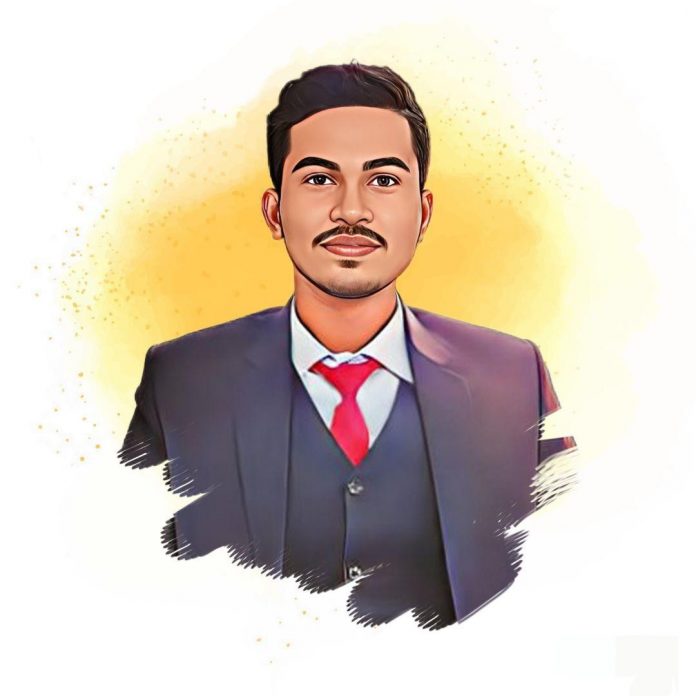Guest contributor
Pacifist Farooq
Since the resumption of fighting between the Myanmar military and the Arakan Army (AA) on Nov. 13 after a year-long unofficial ceasefire, the Rohingya community has become more vulnerable than ever, compounding the already alarming humanitarian catastrophe in the region.
As victims of genocide, the Rohingya have had at least another 62 killed during fighting in recent weeks. I grew up in the open-air prison known as Myanmar’s northern Arakan State. On Feb. 22, I finally connected with my relatives living in Buthidaung Township after eight weeks of a complete telecommunications network shutdown across northern Arakan.
They told me they were very worried and in fear of being killed. They dug pits under the earth and slept there at night as a precaution against the violence occurring around them.
Ethnic Rakhine and others living across Arakan have gone to Yangon and Mandalay to avoid the fighting. But the Rohingya are not allowed to leave their communities, due to restrictions placed on their movements from the military, meant to keep them stuck between two armed groups.
The fight is between the military and the AA, an ethnic Rakhine armed group. Why should Rohingya be killed? Why are the lives of Rohingya so cheap? Where is the U.N.? Does it truly exist?
The Rohingya remain unprotected despite the International Court of Justice (ICJ) ordering Myanmar to safeguard us from further genocidal attacks, and to preserve any evidence of past crimes.
Instead of protecting the Rohingya from further harm, the military is indiscriminately bombing our villages and arresting us on false accusations of links to the AA.
The conscription law does not apply to Rohingya because they are not recognized as citizens of Myanmar, but I’ve heard the military has forcibly recruited 400 Rohingya men from Sittwe and 140 from Buthidaung to fight against the AA.
This surely will fuel the animosity and destroy attempts at social cohesion between the two communities, Rakhine and Rohingya.
It is clear that the military wants to trigger more intercommunal violence in Arakan, where scars have yet to heal for the Rohingya since 2012. Indeed, the military seems determined to completely wipe the Rohingya from the face of the earth despite the international pressure on them to protect my community.
The saddest thing is it is not just the military. The AA is also taking advantage of the vulnerability of the Rohingya. There’s nobody to protect us. In 2020, the AA started to tax Rohingya for buying or selling land, just like the military.
The Rohingya Human Rights Initiative and sources on-the-ground reported that the AA took positions in Rohingya villages and at least 40 were killed. It is arresting Rohingya and killing our leaders, making false accusations of links to the military.
The saddest thing is that the AA neglects our own history and existence. In a BBC Burmese interview with Tun Mrat Naing, the commander in chief of the AA, refused to recognize the Rohingya. He implied that we are a threat to the people of Myanmar, including ethnic Rakhine.
The AA has no clear strategy of how to treat the Rohingya and as it gains more autonomy in northern Arakan it has no plan on how to provide us with citizenship documents.
However, what if the National Unity Government (NUG) defeats the military and takes over power in Myanmar? Will the Rohingya crisis then be resolved? Will the AA listen to the NUG?
As simple as these questions are, the answers are not easy. Democracy has flaws and disadvantages. It works in favor of the majority, of which the Rohingya are not in Myanmar, nor in our homeland of Arakan.
The future of the Rohingya remains precarious. The international community and the U.N. must ensure our future is in Arakan, addressing the complexity of political, legal, social, and humanitarian factors.
They must also assure that Myanmar protects our lives in Arakan. Most importantly, the international community must pressure it to repatriate Rohingya refugees from Bangladesh only if Myanmar recognizes our citizenship rights.
We’re a living, breathing, community in an open-air prison. We’re not meant for the museum. We want justice and accountability.
Pacifist Farooq is a Rohingya refugee, poet, and teacher living in the world’s largest refugee camp in Cox’s Bazar, Bangladesh.
DVB publishes a diversity of opinions that does not reflect DVB editorial policy. We’d like to hear what you think about this or any of our stories: [email protected]



